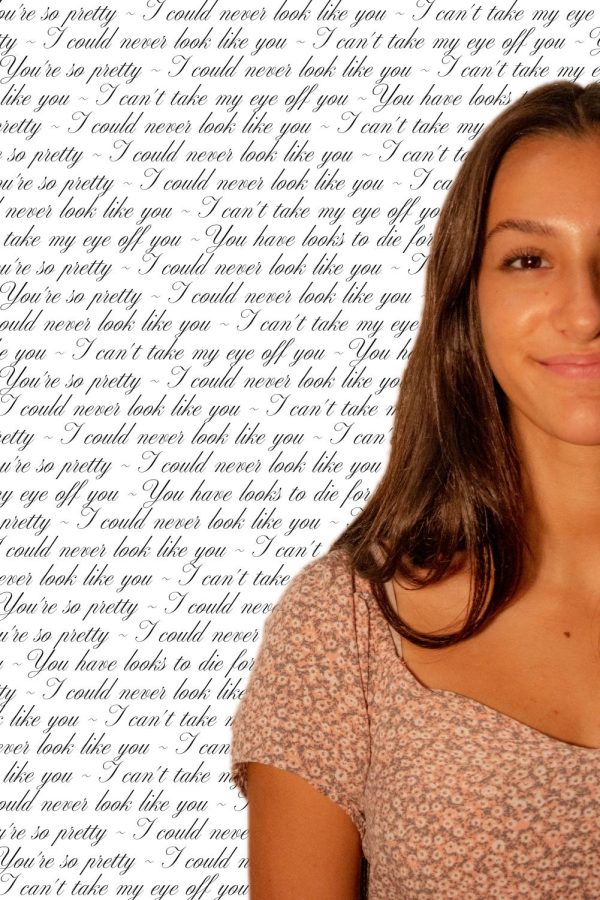When sitting with a group of school friends on Park Avenue, eighth grader Samantha Krieger was approached by a stranger, who complimented her on her looks and asked for her social media specifics.
“It was an awkward interaction,” Krieger said. “But, I gave him my snapchat and number.”
Although Krieger was off-put by this particular interaction, she has experienced both positive and negative interactions as a result of her appearance. Experiences such as people being nicer to her and treating her better demonstrates this privilege. Pretty privilege is the theory that people with features that society considers attractive are entitled to certain advantages. They not only receive advantages in their social life, but also in the workplace, school and their overall career.
“If you have pretty privilege, you are brought up every single day by many people with them saying that you’re pretty and saying a bunch of stuff about you, which just boosts your confidence,” Krieger said.
The rise of the term pretty privilege started on social media, specifically TikTok, and has grown exponentially with the prevalence of social media. Women’s study professor and researcher at Western Illinois University Lori Baker-Sparry, who has been teaching for 24 years, has seen the increase of this term over the past decade.
“We’ve talked about lookism for at least as long as I have been teaching, but I believe it’s really taking off because of social media,” Baker-Sperry said. “I do worry that social media only reinforces pretty privilege, consumerism, etc.”
Freshman Ceci Bove, a model for The Maile Image Modeling & Acting School, has witnessed pretty privilege in the modeling community because not only do they look for personality, but also certain body types, long lips and uncommon features.
“Everyone is blessed with gifts, which affects a little bit of everything, and pretty privilege is definitely a thing,” Bove said. “If anything, the only thing I’ve seen is that people are nicer to you and believe you’re easier to talk to.”
Eighth grader Monely Balouchian has personally witnessed privileged experiences with relationships and popularity at school.
“I’ve seen everyone else be treated differently by pretty privilege. People get treated differently when they go out. People may believe they do something better, rather than the people who don’t have pretty privilege,” Balouchian said. “The kids will look up to them which can affect both people who are offering pretty privilege and the people who do not.”
Not only is it found in social environments and school, but is also observable with adult workplaces.
“They may find they have more opportunities to succeed and are often believed to be smarter, better at their job/school work, even if it is not necessarily in line with what they can actually do or how qualified they are,” Baker-Sperry said.
Features deemed attractive are predominantly associated with whiteness; it is found that pretty privilege is rooted in white supremacy and racism.
“White supremacy provides privilege for white people and what is considered ‘pretty’ has definite racial roots in U.S. society,” Baker-Sperry said. “Many feminist scholars and activists work to put an end to treating women as having status or not based on patriarchal and racial ideals of ‘pretty equals feminine white woman.’”
Falling under pretty privilege, the “halo effect” combines the overall impression of a person as attractive. This theory translates good looks into goodness, competence, deserving of trust and approval and generally likable which influences how we view a person and their abilities.
“The halo effect is the idea that someone who manifests prettiness is somehow more trustworthy or good at heart,” Baker-Sperry said. “And that those who do not have pretty privilege are not.”
Despite being deeply rooted into society, there are ways for us, both the perpetrators and victims of supporting pretty privilege, to work against it. We must implement policies that focus on equal treatment.
“If we value diversity, then we must radically consider how our cultural treatment of pretty privilege underpins some pretty gross opinions that are problematic,” Baker-Sperry said. “In reality, we cannot promote a culture of diversity and inclusion while lookism abounds.”













